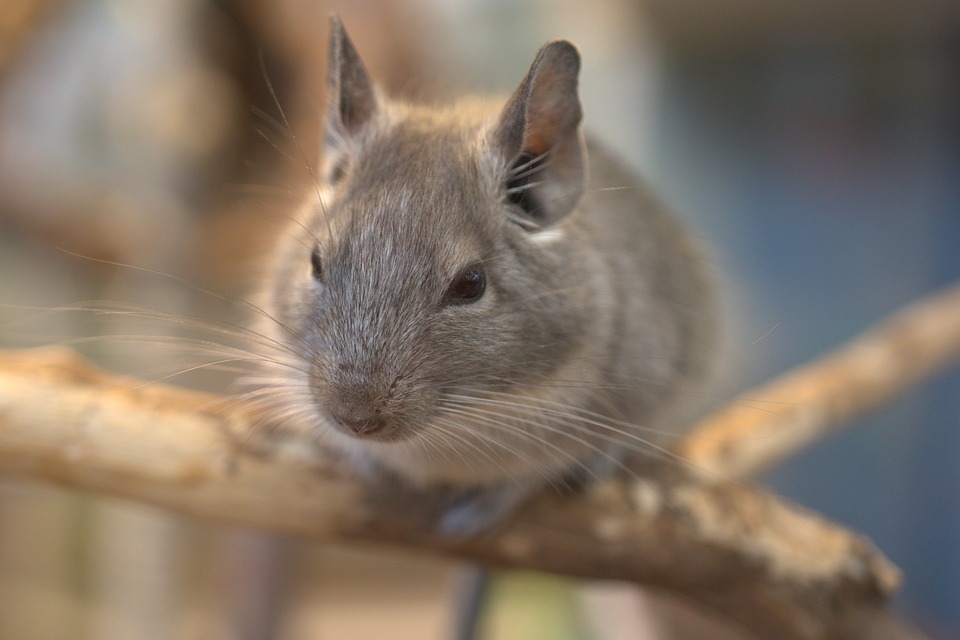Chinchillas are a popular pet among small animal owners. However, despite their adorable features and playful personalities, some people remain unsure about one important fact: Are chinchillas considered rodents?
Let’s explore exactly what characteristics classify chinchillas as rodents and why some people may still think they are not. Keep reading.
Chinchillas: Are They Rodents?
Yes, chinchillas are considered rodents. This is because they share many of the same physical and behavioral characteristics as other members of the rodent family. Chinchillas have large front teeth that grow continuously throughout their lives, just like other rodents do.
They also spend a lot of time gnawing on objects to keep their ever-growing teeth in check, which is another common trait among rodents. Additionally, chinchillas show typical rodent behavior such as frequent grooming and nesting activities.
Despite these facts, some people may still be unsure if chinchillas belong to the rodent family due to their relatively small size compared to other animals typically classified as rodents; however, it’s important to remember that there are many different types of rodents with varying sizes and shapes – from mice all the way up to capybaras. All in all though, based on their physical features and behaviors, it is clear that chinchillas are indeed part of the rodent family.
Why Some People Believe Chinchillas Are Not Rodents.
Some people may not believe that chinchillas are rodents due to their relatively small size compared to other animals typically classified as rodents. Additionally, the fact that they have soft fur and a more docile nature than most rodents can lead some people to think they belong in a different species altogether.
Furthermore, since chinchillas live much longer on average than members of the rodent family – up to 20 years – many owners might be misled into believing they’re something else entirely.
Another reason why some people tend not to classify chinchillas as true rodents is because of their uniqueness when it comes to diet and behavior.
For example, unlike other rodents who mostly eat plant-based foods such as grains or nuts, chinchillas require specially formulated pellets made from hay and vegetables for optimal nutrition. They also enjoy playing with toys which can make them appear far less rodent-like than others in their family.
All these factors have caused confusion among those unfamiliar with the species which has led some to erroneously think of them as something else entirely!
Why Are Chinchillas Considered Rodents?
Chinchillas are considered rodents because they share many characteristics of their larger rodent relatives. They have large front teeth that continuously grow, just like other rodents, and their diet is composed mainly of plant materials such as seeds, leaves, and bark.
Chinchillas also display the same behavior patterns as other rodents including gnawing on objects to wear down their ever-growing teeth. Furthermore, like rats and mice, chinchillas are relatively small mammals with a body length between 10-14 inches.
Another similarity between chinchillas and other members of the rodent family is their reproductive cycle. Chinchillas typically give birth to litters ranging from one to three after a gestation period lasting about 105–115 days, similar to what can be seen in most other types of rodents.
In addition to this, female chinchillas reach sexual maturity at an early age (around eight months) while males become sexually active around eight months old too.
Conclusion
In conclusion, the classification of chinchillas as rodents is based on their physiology and behavior. Chinchillas show many rodent characteristics such as small size, specialized teeth, and the ability to live in burrows. Some people may not consider them rodents due to their soft fur and cuddly nature, but all scientific evidence points to them being rodents. Beyond just being classified as rodents, they also make excellent pets that provide companionship and amusement for families who are looking for more unusual pets than traditional cats or dogs.
